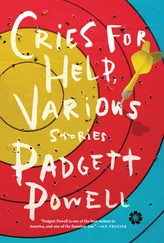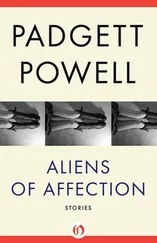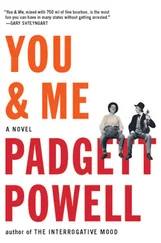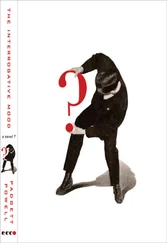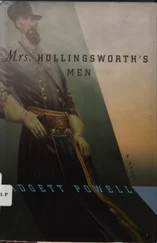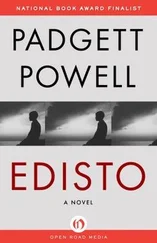A dog may have dignity, but not a desperate dignity. No dog, save those very first ones to perceive the domestication plans, has ever been possessed of a dignity of desperation. It is arguable that the kind of poodle whose nails get painted purple by Lisa’s condo neighbors can have a desperation, often betrayed by its nail-clicking dancing irrational barking skin problems self-mutilation visits to dog psychologists etc., but this, too, is not a desperation of dignity. This is clearly a desperation of indignity, and why Lisa likes a rat under the sink, not a dog.
IN A FLOOD WE had, a poet I know came walking down the riverbank, just as I recovered from the river itself a woman — I was in it grabbing the good things a flood can bring, which might sound a bit dangerous but isn’t, really, if you place yourself on a sandbar, as I had, or in an eddy closer to the bank, as had a buddy of mine who’d come over to drink beer and watch the flood with me until we decided to get in it and grab loot — the poet asked me (and I know he was able to see that I was holding what he had to perceive as a drowned woman, he could see her back, broad and pale, as she rose up out of the dark water more or less into my arms, and I mean rather gradually and smoothly, as though she were tipping up on her toes for a kiss, so amorously and languidly in fact that I was not alarmed at the immediate prospect of kissing a dead woman, in fact the issue of her medical condition did not cross my mind, what crossed my mind was beauty, which Itself I thought I was beholding— Beauty —though in the upper corner of my landward eye I could see my beer buddy beginning to look alarmed, seeing me, as he was, stare without alarm into the eyes of what he also had to think was a drowned woman, without alarm hardly being correct, I should say without the kind of alarm one is expected to display in these circumstances, for I was undergoing a most profound alarm, a perhaps uncommon despair you can have if you find yourself, as I was finding myself, holding a woman so stunningly beautiful you do not even perceive that she is wet, let alone dead, and now I think that she was not wet: a heart-stopping dread comes over you that this will not last, this look she gives with her eyes that says we could have been an item, you and me, her eyes dark and a bit widened, widened you think by her precise knowledge that a huge love is possible here in all senses except the real, and you do not dare even kiss a woman in these situations for fear of somehow shortening or spoiling the little time you have, time which is already beginning to collapse as you see your beer buddy upstream starting to wade down, you can tell, to get you back to your senses, your time together which you elect to protect by letting her go back into the flood with one giant shoulder-slumping sigh of resignation before he gets there, and her flowing hair blends into the tea-colored water, and she joins the common flotsam of tires and cows and appliances and light bulbs, and your beer buddy stops, more stunned) — and the poet asked me, when she was gone, “Why is this water so dark?”
And then he asked if we saw his wife earlier come down the riverbank, and though we did, we did not answer, could not answer — I know of no way to answer a question like that, yet kneeling, facing upstream, with what has happened to me going downstream: in fact he requires no answer, he knows that his pallid wife is ahead of him, and not far enough ahead to be lost, and he is therefore indifferent to one’s rescue, or whatever I did, with whatever I had, dead woman or mermaid. This is the notion I have, kneeling, as close to drowning the poet as he ever needs anyone to be. I know something about this uncurious poet, I can be most uncurious myself.
Before she arrived, I watched with careful indifference the baby dolls, bicycles, hair dryers (the institutional dome type — very little in a good flood makes sense), a piano with a deer on it … Yet what one watches is the water — swirls, slicks, butter-colored suds. As a consequence, women can surprise you.
I know some poets who would have leapt into the water and watched the face of this visionary woman disappear, uttering the same pained gasp I did, asking only, “Is it over — between you two?” before diving in headlong downstream after her. And some poets I know would not have asked but thrashed thigh-deep to her and taken her roughly by the hair from your very embrace.
But today’s poet stays his course. “I’m not lost, am I? I don’t recognize things with all this water. It sure is dark, too.” The pallid figure of his wife lures him on, she also who walked by the magic scene.
The poet keeps going downriver. My wife, my wife, he thinks. Having asked after his living, actual wife, having seen the release of a mermaid he would not acknowledge, he now thinks about his dead, nonactual wife, his first wife.
He sees her in only a handful of fixed attitudes, lovely aspects, doing a handful of things, dear wifely functions he was indifferent to when she was alive. His indifference to these touching scenes killed her, he thinks. Ironing.
She is ironing his shirts, humming a popular song. A top-forty radio thing. Heavy cotton broadcloth shirts she presses, working the iron like a hot trowel in mortar, and somehow the freshness of the laundered shirts transfers to her, to her dress, her dress becomes in his memory a spectacular simple girly A-line — crisp, sweet, damp — and she his wife a cool-skinned model of a girl doing all this for him, with equanimity and grace, and if he were not following her replacement down a river, not watching the water lest someone’s mermaid surface and appeal to him for help, he would whistle a tune and go to his first wife and nose her in the pleats and darts as she irons, over light steam.
THE DINER QUIT SERVING food, but it did not close. Likewise, the drive-in stopped showing movies but remained open. Songbirds of all character and kind gave their distinctive calls and showed their identifying profiles and markings and gave cats hell and made a general paean to Roger Tory Peterson. A lone Allis Chalmers combine dominated the skyline. It, the machine, was for sale, used, quite used.
The ladies of the town were so nice, and had been so deliberately nice all their natural lives, that they came to regard cancer as a blessing. Most of them got it; those that didn’t felt cheated, left out.
The men had never learned to cuss, drink, fight, adulterate, or drive too fast. They stood there as their wives received the good bad news and as the songbirds flitted about their heads like gnats. “What a revolting development this is,” one of them said, earnestly thinking the remark funny. “It’s Tuesday,” the comic farmer continued, “and will be all day unless it rains.” He could not suppress a giggle.
It no longer bothered him that he did not know — no one knew — who the father of his wheat was. He had come, over the years, to regard his wheat not as bastard wheat but as adoptive. No one knew the father of the adopted, and that did not make for calling them bastards. “That’s being wrapped too tight,” he concluded, using for the first time, with a thrill, a line he had heard on a television comedy show he did not understand but laughed at anyway.
He had heard flip your wig on the same show. Flip your wig and another even more obscure expression used near it, wig out, made him uncomfortable. He told the Allis Chalmers dealer that the used combine was wigged out, to test the meaning. The Chalmers dealer merely shrugged and patted him on the shoulder and walked back into his showroom. He had meant that the combine was worn out, but now, having been a smartass, he had no idea what wigged out meant, and he was afraid to proof the term any further.
Читать дальше

